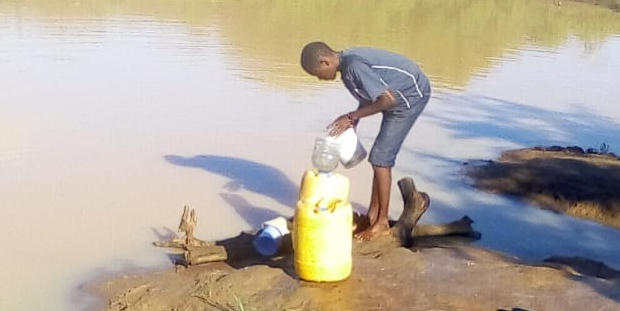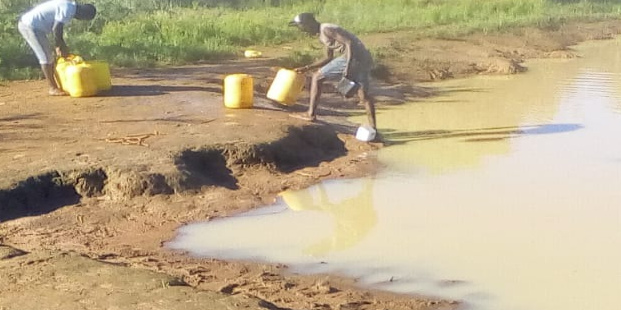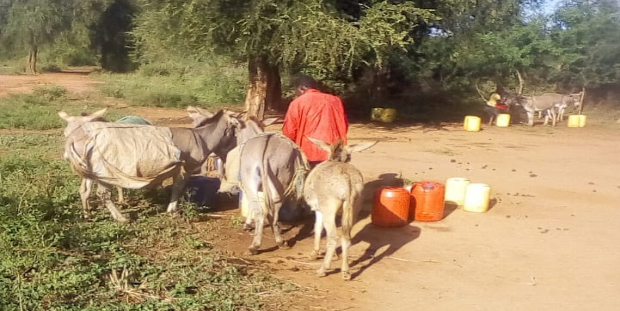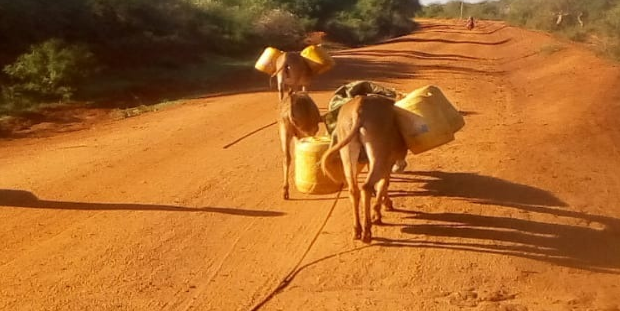Water is Life, Help Villagers of Ngwate, Imiw’a, Kisou, Kamuvala, Mavia and Ndili have it!
Fundraising campaign by
Amos Sherinah
-
US$0.00raised of $15,000.00 goal goal
The campaign owner has stopped the page from accepting further donations. Please contact them if you'd still like to donate
Campaign Story
NGWATE, IMIW’A, KISOU, KAMUVALA, MAVIA AND NDILI VILLAGES BOREHOLE PROJECT
PROJECT PROPOSAL FOR CONSTRUCTION OF BOREHOLE AT NGWATE VILLAGE, MUTOMO SUB-COUNTY, KITUI IN KENYA
BACKGROUND & JUSTIFICATIONS
This project is designed to enable the villagers of Ngwate, Imiw’a, Kisou, Kamuvala, Mavia and Ndili villages located at Ikutha, Sub-County of Mutomo in Kenya to have access to safe and clean water. The community depend on pastoralism and farming as their main source of livelihood. The village is characterized by poor social services, poor infrastructure, and severe food insecurity, deteriorating livelihoods, highly depleting natural resources and dependent on relief food rations from the government during droughts, which occur almost every year now due to climate change. All of these contribute to the situation of absolute poverty, which in turn leading destruction of the environment by charcoal burning, excessive massive sand harvesting contributing to soil erosion and destroying season water streams, social problems like cattle rustling, drugs and finally, leading to rural urban drift to look for unskilled labour as guards and other unskilled jobs leaving the important pastoral and farming activities.
The village is located in arid and semi-arid land. Poverty levels in this area are relatively high, which in turn affects human development in all aspects, as well as contributes to social problems and destruction of the environment through charcoal burning and massive sand harvesting in the available seasonal rivers and streams. Pastoralism is our main economic activity. They are involved in rearing of livestock such as cattle, sheep, goats and donkeys. Some also practice small scale subsistent crop farming, which is being inhibited by erratic rain patterns and lack of proper seeds and technology to grow crops in dry lands. A very small portion of these people are in formal employment as teacher, servicemen and local government employees. The levels of literacy are also high especially to members of the community between and above 40 years.
Ngwate, Imiw’a, Kisou, Kamuvala, Mavia and Ndili villages are extremely water scarce. County statistics records that approximately 33% of the population depend on dams and earth pans for water. 19% use seasonal rivers, 11% use boreholes and 14 percent use shallow wells. About 73% of the entire population especially women and children travel long distances 15 kilometers to get water and still this water is unclean and unreliable. High evaporation rate coupled with erratic rainfall and degrading soil quality with poor water retention capacity makes water pans an unreliable source of water. Women and young children are at high risk of contracting water borne diseases on daily basis. Not long ago, there have been cases of diarrhea and typhoid reported due to contaminated water especially during rainy seasons, again exposing expectant mothers and children to high risk due to low immunity. This is increasing the under-five mortal rate to unacceptable conditions.
Children have been exposed to many dangers when they fetching water. In 2018 three boys fell in to traditional make deep water pit like well and died as they were fetching water for livestock and a male primary school teacher who tried to save their lives also died in the same tragedy. For several years we have witnessed cases of members of the community dying when they are fetching water for domestic use and livestock by falling in to these dangerous traditional water pits.
Water is key to food security as crops and livestock need water to grow. These two natural resources and commodities are among the basic human needs which human cannot survive without and in fact, they have been declared as human rights. Continued lack of access to clean, safe and reliable water and sufficient and nutritious food is dehumanizing this group of people and threatening their survival.
There is a warning that food security will become an increasingly complex political and economic problem over the next few years. Here at Kamba land especially Ngwate village, we have experienced conflicts of pastoralists fighting over scarce water resources, insufficient food and depleted grazing especially when Somali pastoralists move their livestock in search of water and grass to neighboring highlands occupied by farmers. Lack of food and water has also impoverished the society. It has caused the Kamba youth to drift from rural areas to urban centers seeking unskilled employment as supermarket attendants and security guards. The problems with this, is that it leads to cultural erosions, social problems such as drug abuse, crime and it also deprive the rural population the much required labour as young men are always depended upon by the community to fend for their elderly especially during the dry spell.
Organizer
- Amos Sherinah
- Campaign Owner
- Nairobi, KE
I’m a child and family social worker. I strive to protect vulnerable children and support families in need of assistance. As a social worker, I also h
I’m a child and family social worker. I strive to protect vulnerable children and support families in need of assistance. As a social worker, I also h
No updates for this campaign just yet






